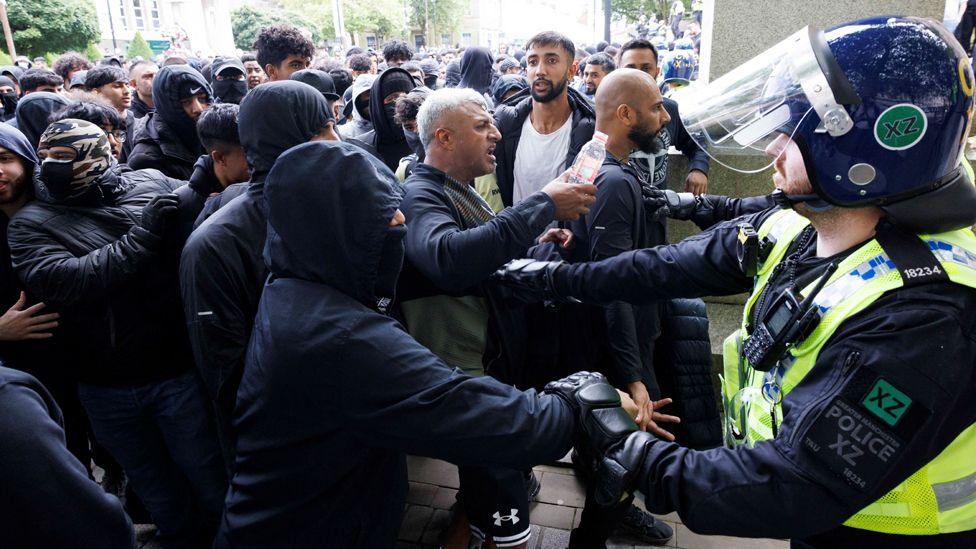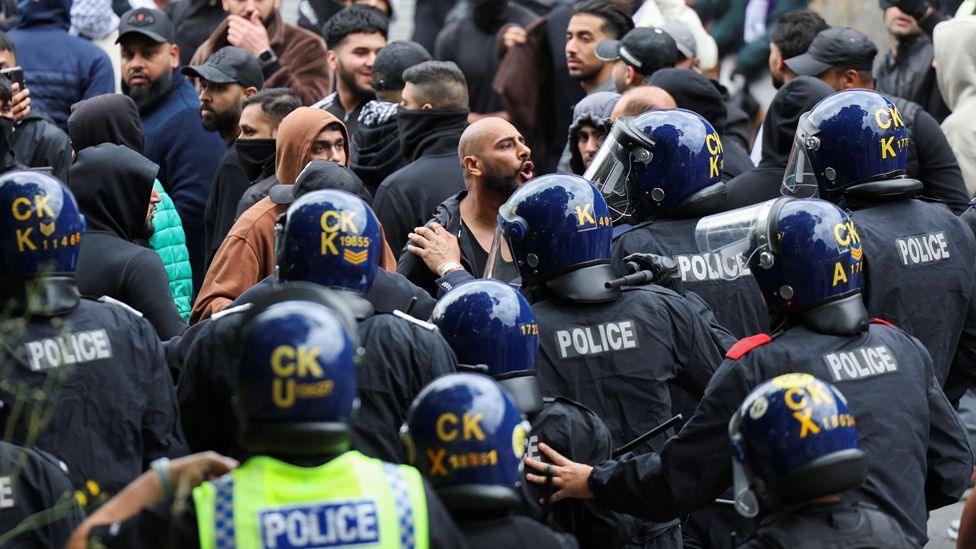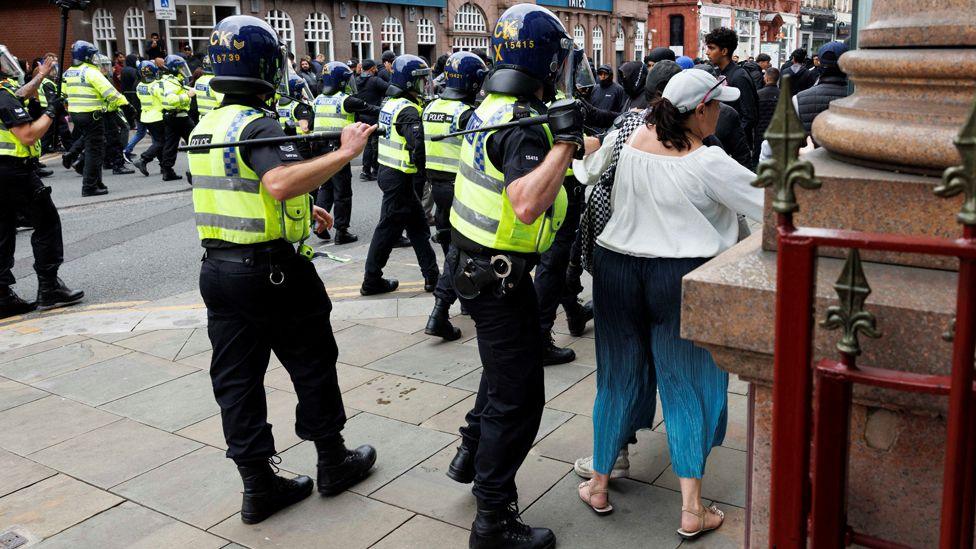Clashes break out between rival groups after protest

Police worked to separate two groups after they came together shortly after a protest began
- Published
Clashes have broken out between rival groups after protests in Bolton town centre.
Police officers in riot gear and mounted on horses have been trying to separate two groups – one waving England flags and the other mainly including Asian men.
Fireworks, bottles, tiles and eggs were thrown as the disorder spread around the town centre.
Greater Manchester Police said it had implemented a Section 34 order in the area, giving officers extra powers to deal with anti-social behaviour, and Section 60 and Section 60AA orders, which grant greater stop and search powers and the authority to insist face coverings are removed.
Watch: Smoke bombs and mounted police in Bolton
An anti-immigration protest began peacefully outside Bolton Town Hall earlier, but within half an hour, about 300 people, who mostly had their faces covered with black face masks or balaclavas, charged towards the building.
They began shouting "Allahu Akbar" - a phrase meaning God is greatest - as they arrived at one side of the town hall, where a separate group had gathered waving England flags.
Police officers in full riot gear, with batons raised, were swiftly joined by a line of horses.
At one point, amid a further cry of "Allahu Akbar", eggs were thrown at the officers, before the group began charging around streets in the town centre.
Both groups then met up in another street, where they were kept apart by police lines, but were close enough to throw bottles, broken tiles and launch fireworks at each other.

Police officers in riot gear held back one group as they shouted at the other
Ch Insp Natasha Evans said the powers had been "authorised in response to increased protest activity".
She said the force had been "working with organisers of pre-planned protests to help facilitate peaceful and lawful protests".
She said locals would continue to see a "large presence in the town" and the additional powers would allow officers "to prevent incidents and keep people safe".
The force used similar powers in Manchester city centre on Saturday when disorder broke out following anti-immigration and anti-fascism demonstrations.
Two people were arrested in connection with that disturbance, including one on suspicion of drunk and disorderly behaviour.

Greater Manchester Police introduced temporary orders to deal with the disorder
The protests in Manchester and Bolton were two of a number to have taken place nationwide across the weekend after the fatal stabbing of three girls at a Southport dance class on Monday.
False claims were spread online that the suspect was a Muslim asylum seeker who had arrived by boat.
However, Axel Muganwa Rudakubana, who was born in Cardiff to Rwandan parents and lived in the Lancashire village of Banks, has no known links to Islam.
The 17-year-old has been charged with three counts of murder, 10 attempted murders and possession of a knife.
Listen to the best of BBC Radio Manchester on Sounds and follow BBC Manchester on Facebook, external, X, external, and Instagram, external. You can also send story ideas to northwest.newsonline@bbc.co.uk, external